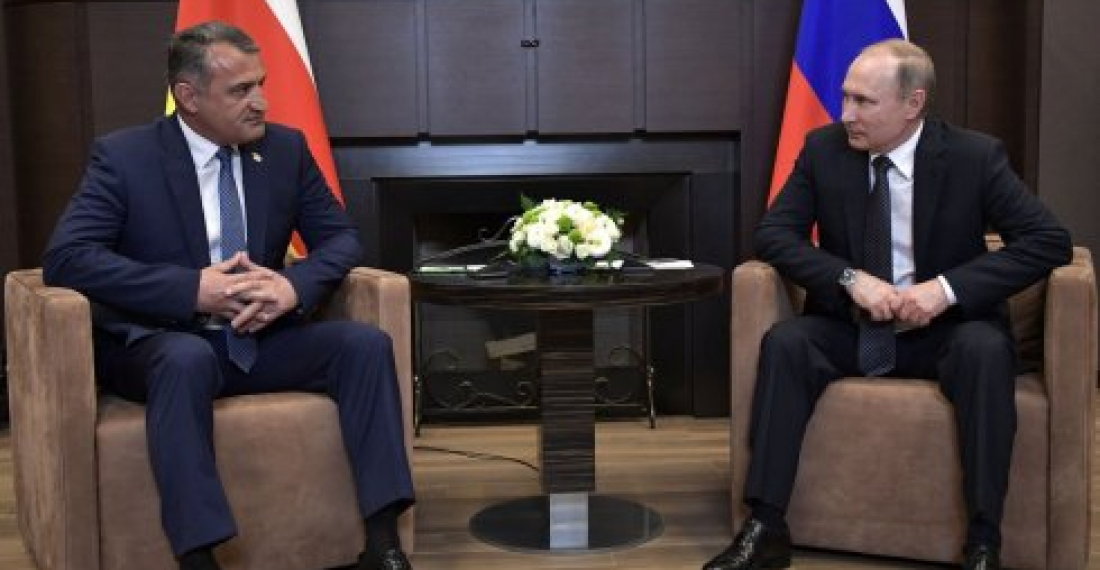Russia's President, Vladimir Putin on Tuesday (2 May) met in Sochi with the newly elected president of the secessionist region of Georgia - the self-declared Republic of South Ossetia.
Sandwiched between Putin's meeting with the Chancellor of Germany, Angela Merkel, a long awaited telephone conversation with the President of the United States, Donald Trump, and preparing for a key meeting on Syria the following day with the President of Turkey, Recip Tayip Erdogan, Putin's meeting with Anatoli Bibilov looks odd by diplomatic standards. Yet in President Putin's grand design of things, South Ossetia is an important player on the international chess board, and experience has taught the Russian leader not to take the politics of the tine territory foregranted.
At the meeting in Sochi, President Putin assured his guest that Russia is going to continue investing in the restoration of the infrastructure of South Ossetia. "Russia is co-financing many social projects. We will continue doing it and we will also develop our investment activities. Here I am talking about restoration of the republic's infrastructure and creation of conditions for economic growth," Putin said. The Russian leader reminded that the two countries are now implementing an agreement on strategic partnership and expressed hope that under the leadership of Bibilov the republic will do its best to fulfill the treaty.
"I would like to congratulate you on the results of the elections. I know that you are an advocate of development of full-fledged relations with Russia," Putin told Bibilov.
Bibilov, South Ossetia's parliamentary speaker, won the April 9 presidential election in the first round, securing 54.8% of the vote. He campaigned on a programme proposing that South Ossetia joins Russia to bring about "the reunification of the Ossetian people"
Bibilov's victory took the Kremlin by surprise, since they were expecting the incumbent President Tibilov to win the election. But Russian leaders have become used to surprises from Tskinvali, ever since they unilaterally recognised the tiny territory as an independent state in 2008. in 2011 a political crisis erupted during the presidential elections which took Moscow completely by surprise and threathened the Russian narrative. A lot of the financial support that Russia has provided to South Ossetia since 2008 has mysteriously dissapeared, and Moscow had to send out its own people to clean the financial mess.
However, for the moment it does not serve Russia's interest to pursue an outright annexation of South Ossetia. The protectorate status of the territory allows the Russians all the benefits, including rights to station large number of troops on Ossetian territory, within an hour driving distance from the Georgian capital Tbilisi. It also allows Russia some space to play diplomatic games with Georgia. Putin has personally managed all things related to South Ossetia, since the 2008 Georgia-Russia war. It looms large in his vision of Russia and its neighbourhood - a model perhaps of how relations with other neighbours can be managed. if only the Ossetians behaved themselves, and stopped pulling surprises.
This report was prepared by the editorial team of commonspace.eu
photo: President Putin of Russia on Tuesday (2 May) met in Sochi with the president of the self-declared Republic of South Ossetia, Anatoly Bibilov (picture courtesy of the press service of the president of Russia)






